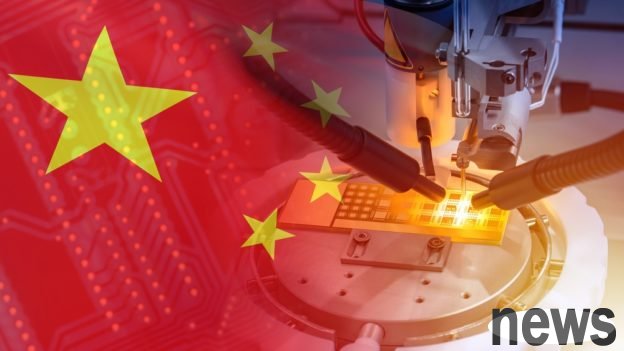According to a bipartisan investigation by the U.S. Congress, although the United States and its allies tried to limit China's ability to produce advanced computing chips, inconsistent specifications announced by each other allowed China to purc...

According to a bipartisan investigation by the U.S. Congress, although the United States and its allies tried to limit China's ability to produce advanced computing chips, inconsistent specifications announced by each other allowed China to purchase nearly $40 billion in cutting-edge chip manufacturing equipment last year.
Reuters reported that both the Democratic and Republican parties in the United States regard the semiconductor industry as a key to national security and seek to limit China's ability to manufacture chips.
However, according to a report read by Reuters by the House Select Committee on China, the regulations announced by the United States, Japan, and the Netherlands are inconsistent, resulting in non-U.S. manufacturers selling equipment to some Chinese companies, but U.S. manufacturers cannot sell.
Without breaking the law, Chinese companies purchased US$38 billion worth of equipment from the world's top five semiconductor production equipment suppliers last year, a 66% increase from 2022.
The report also found that this purchase amount accounted for nearly 39% of the total sales of the five giants including Applied Materials, Lam Research, KLA, ASML, and Tokyo Electron. The report emphasized: "Such sales have enhanced China's competitiveness in various semiconductor manufacturing fields and have a profound impact on global human rights and democratic values."
Mark Dougherty, president of the U.S. branch of Tokyo Weinig Technology, said in an interview that due to factors such as the introduction of new regulations, the industry's sales to China have been on a downward trend this year. He is also happy to see the U.S. and Japanese governments strengthen coordination.
Applied Materials and Colin R&D did not respond to requests for comment, and Asmore and Kelei said they could not respond before seeing the full report.
The U.S.-China Special Committee on Strategic Competition stated that the above-mentioned equipment manufacturers cooperated with the committee’s investigation and have been informed of the investigation results.
Among the major customers of chip manufacturers, three Chinese companies are particularly worrying, namely SwaySure Technology Co., Shenzhen Pengxinxu Technology Co., Ltd. and SiEn (Qingdao) Integrated Circuits Co.
Committee Chairman John Moolenaar and Democratic Party Chief Representative Raja Krishnamoorthi wrote to the U.S. Department of Commerce last year, alleging that these three companies were involved in secretly assisting Huawei Technologies Co., Ltd., and the U.S. banned the export of related equipment to these three companies in December last year.
This committee report recommended that allies should strengthen coordination and introduce broader controls, including restricting China’s access to components that can be used to build its own chip production equipment.